Research Reports
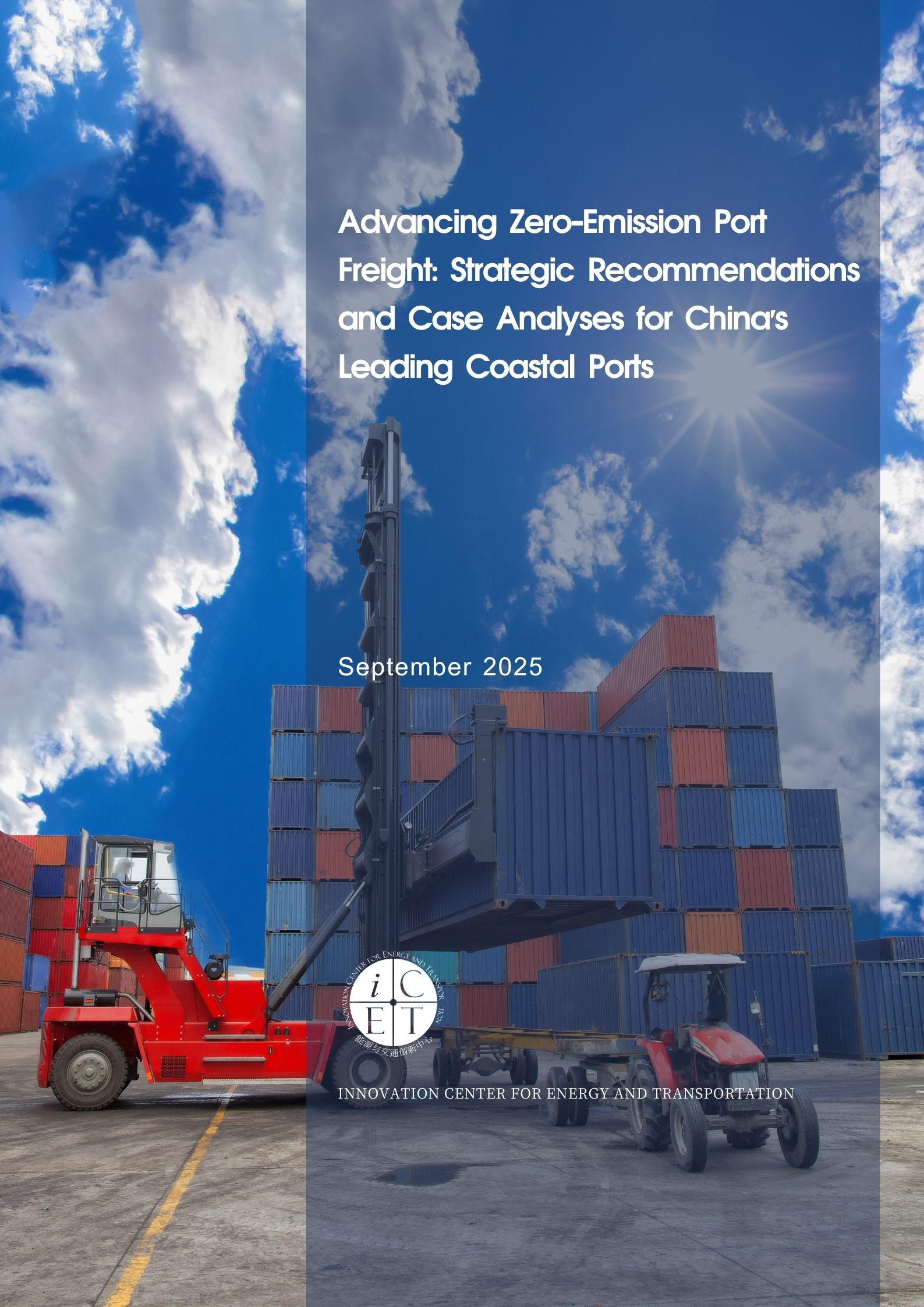
Advancing Zero-Emission Port Freight: Strategic Recommendations and Case Analyses for China's Leading Coastal Ports
As key nodes in the global integrated transport network, ports play a vital role in both regional and global economies, serving as indispensable links in international trade and supply chains. In the context of climate action, the highly open and internationalized nature of ports makes them a priority for zero-emission transition. This report focuses on port freight, including both terminal equipment and port-hinterland transport. It first reviews major international zero-emission port freight initiatives to benchmark global progress.
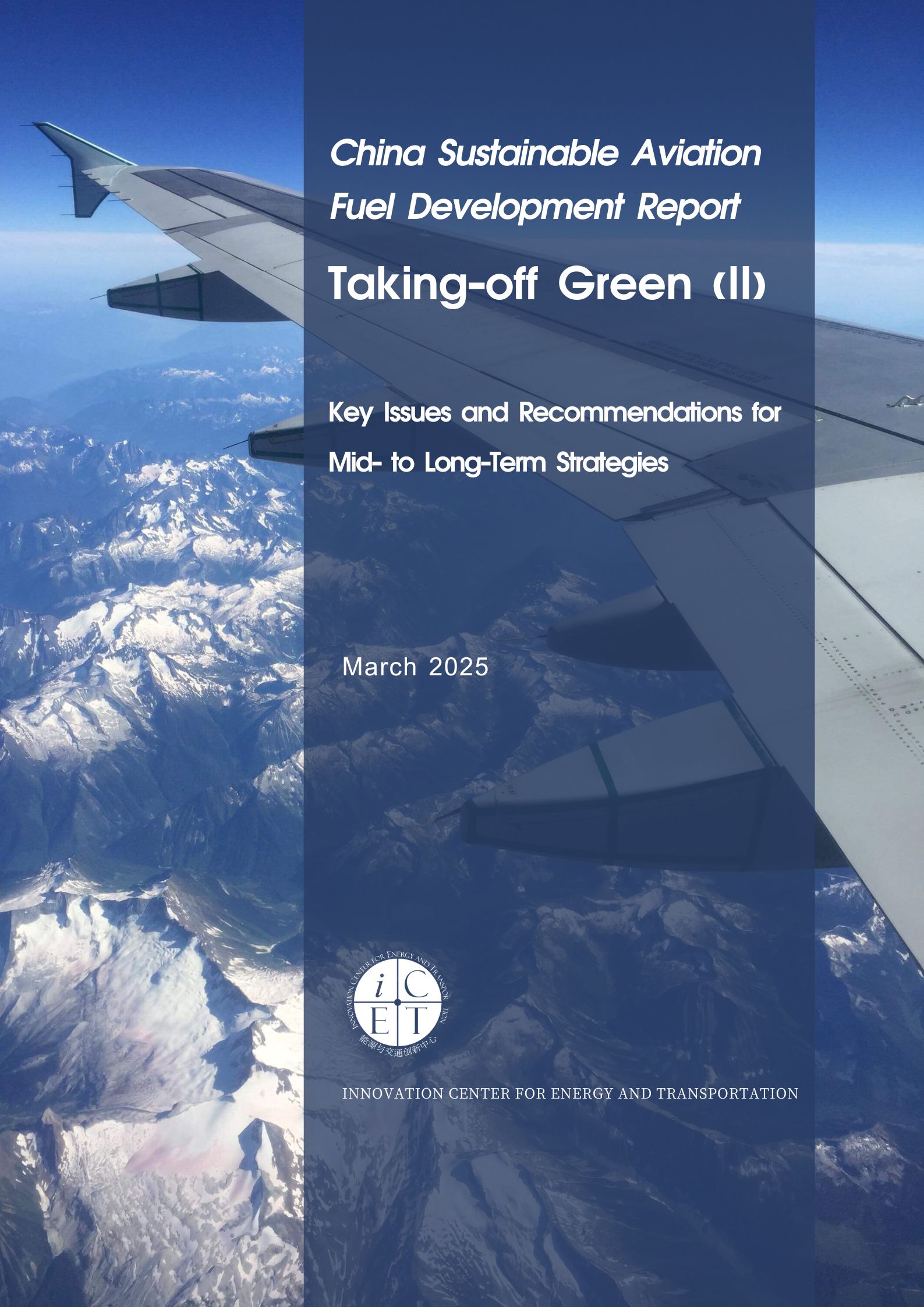
China Sustainable Aviation Fuel Development Report Taking-off Green (II):Key Issues and Recommendations for Mid- to Long-Term Strategies
To advance the development of sustainable aviation fuel (SAF) in China and support the decarbonization of the aviation sector, the Innovation Center for Energy and Transportation (iCET) launched the “Green Takeoff” research series in 2023. The series aims to review the current status and challenges of SAF development in China and to propose localized, long-term strategies and recommendations to promote its adoption and application. This report is the second full report in the “Green Takeoff” series, providing a systematic analysis of the key issues affecting the medium- and long-term development of SAF in China and offering feasible policy recommendations.
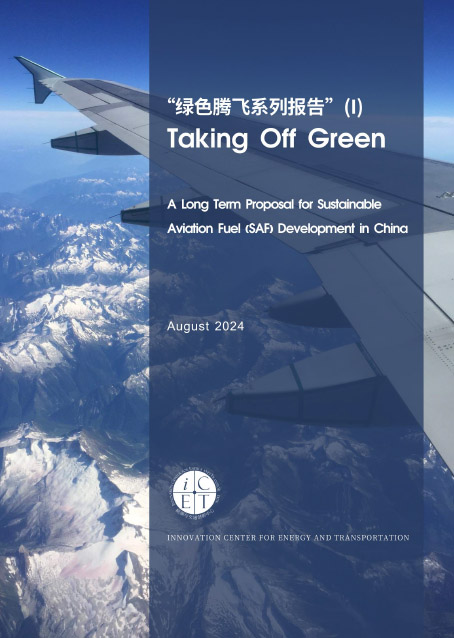
China's Sustainable Aviation Fuel (SAF)(December 2024/English)
The Innovation Center for Energy and Transportation (iCET) is excited to share this report on China's Sustainable Aviation Fuel (SAF) industry. It explores the current state, future potential, and ways to improve national policies and stakeholder involvement.
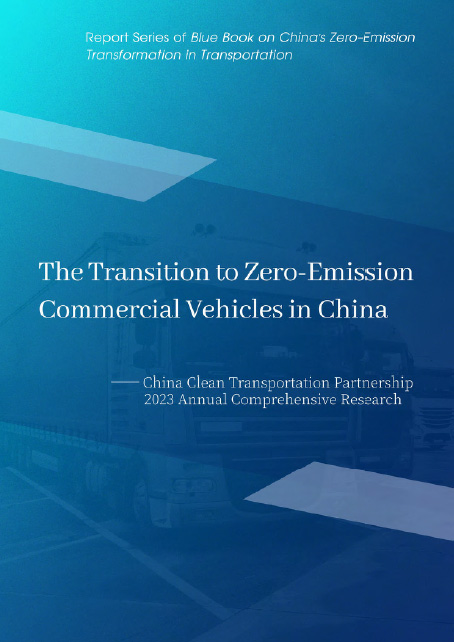
The Transition to Zero-Emission Commercial Vehicles in China(December 2023/English)
The report analyzes the challenges and future trends of this transition from multiple perspectives, such as policy evolution, technological pathways, economic costs, and infrastructure development. The report also provides targeted policy recommendations to accelerate carbon reduction in the commercial vehicle sector and promote the adoption of zero-emission technologies.
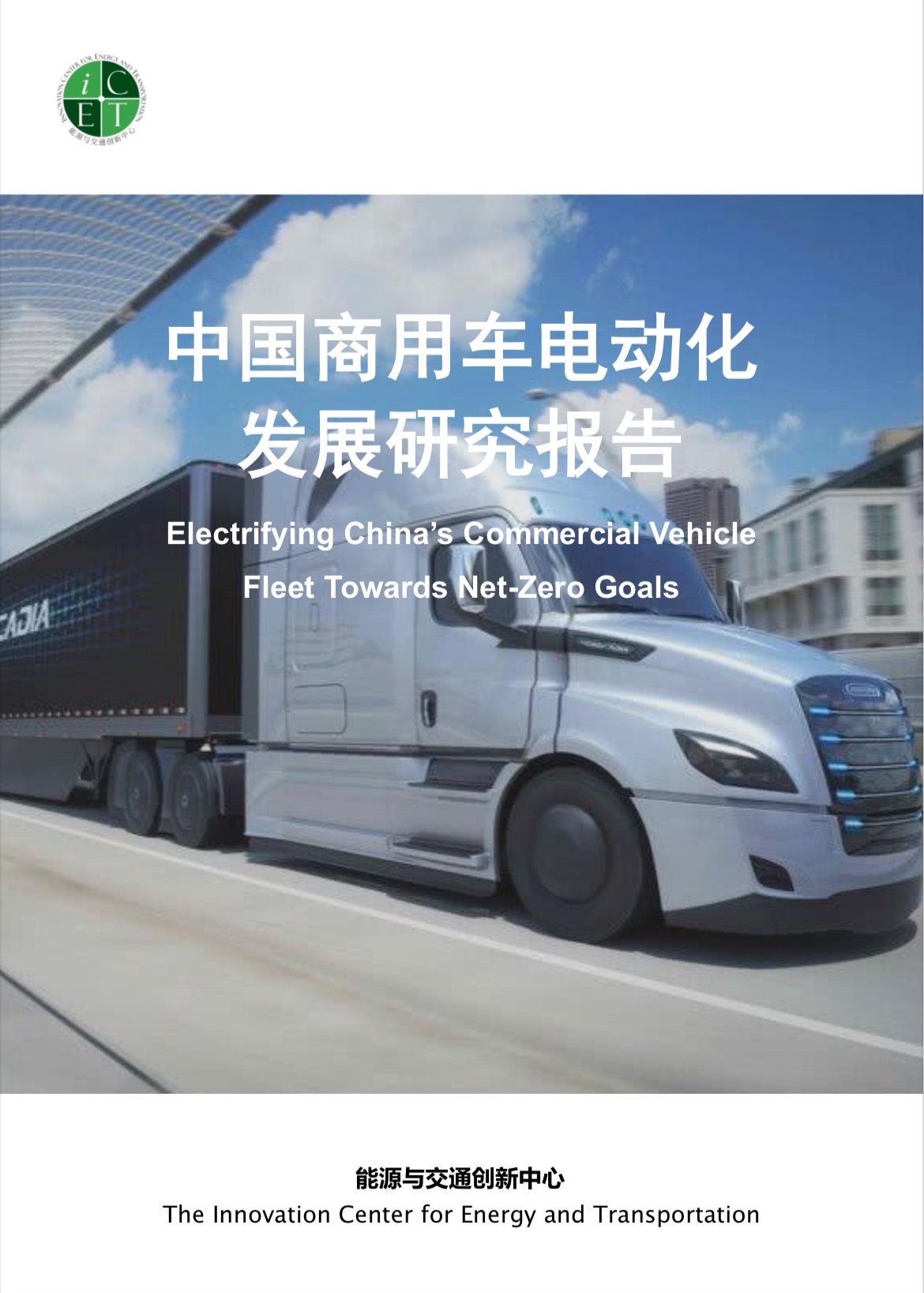
Executive Summary - Research Report on Electrifying China’s Commercial Vehicle Fleet Toward Net-zero Goals (July 2021/Chinese)
"carbon emissions peak by 2030 and carbon neutrality achieved by 2060" goals proposed, all industries are actively formulating the timetable for achieving these goals. Commercial vehicles emit about 7 percent greenhouse gas of the total domestic emissions at the user-end level, reducing carbon emissions from this sector is of great significance to the realization of the 30/60 goal. This research systematically analyzes the current status and development potential of the electrification of China's commercial vehicles. Through scenario analysis, it explores the timing and pathway for commercial vehicle fleet to reach peak emissions and achieve net zero goals, and on this basis, proposes policy recommendations to ensure supportive policies and measures will be in place to achieve that goal.
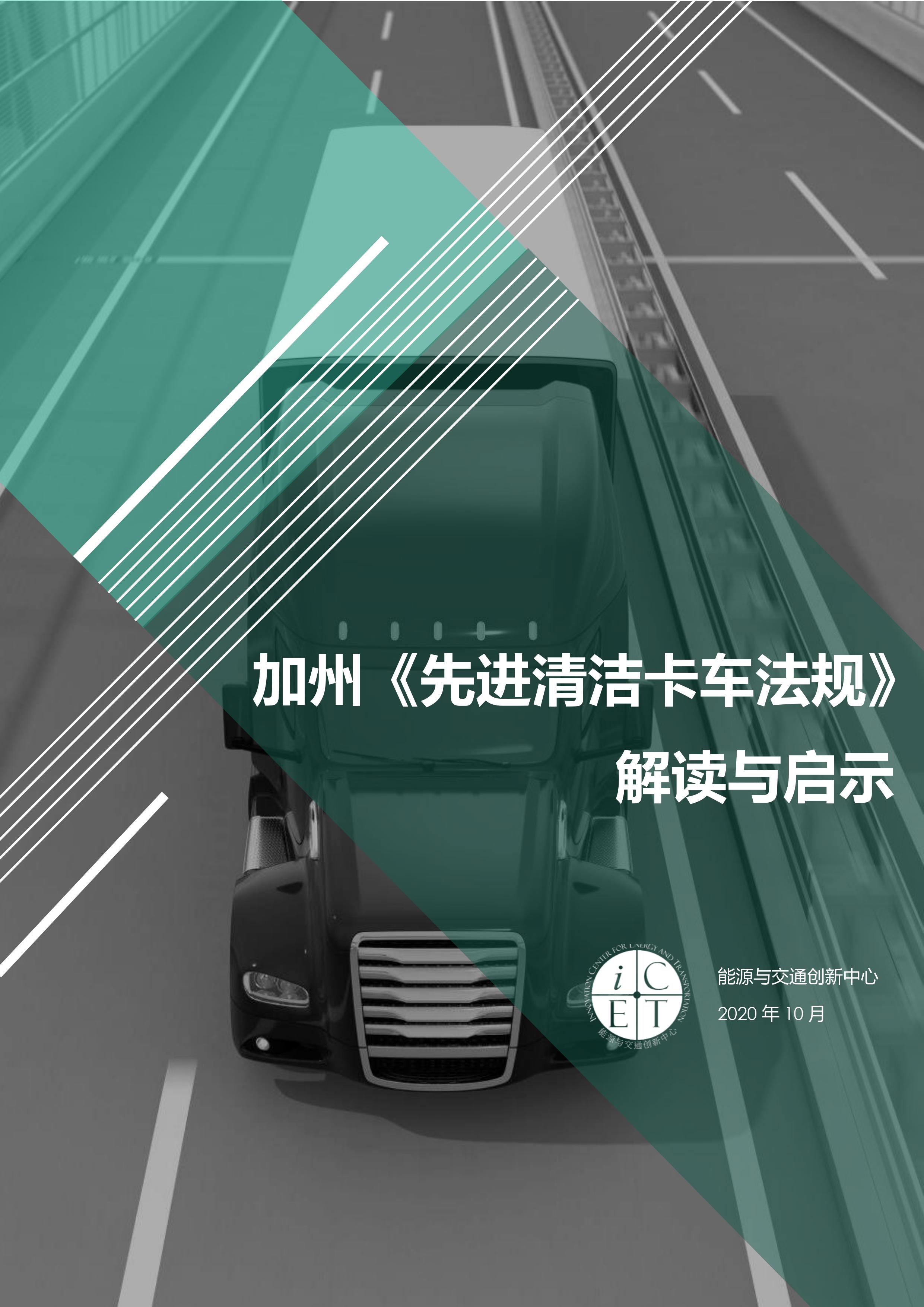
Complete Report on the Interpretation and Inspiration of California’s Advanced Clean Truck Regulations (November 2020 / Chinese)
In June 2020, the California Air Resources Commission voted to pass California’s “Advanced Clean Truck Regulations,” which is the world’s first mandatory regulation in the field of zero-emission trucks and has guiding significance. At the same time, as the world’s largest automobile market, China is also actively developing new energy commercial vehicle credits and fuel battery vehicle pilot projects. An in-depth research and interpretation of California’s “Advanced Clean Truck Regulations” will provide valuable experience for China's conversion to electric commercial vehicles and help sort out the problems and challenges along the way.
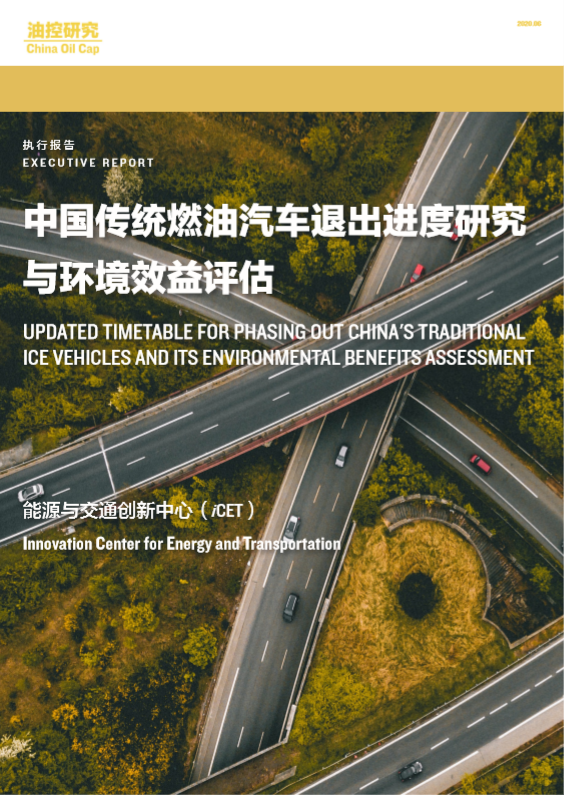
Updated Timetable for Phasing Out China’s Traditional Fuel Vehicles and Its Environmental Benefits Assessment (June 2020 / Chinese)
This study is based on Research on the Exit Timetable of Chinese Traditional Fuel Vehicles in 2019. Through the analysis of exit cases of traditional fuel vehicles in some cities, the national traditional fuel vehicle exit timetable is categorized and allocated by region, vehicle type, and phase. Further optimization, adjustments, and corrections were carried out, formulating an exit schedule targeting traditional fuel vehicles at all levels and types, proposing exit plans during the “14th Five-Year Plan” period and in the long term. Simultaneously, a comprehensive assessment of emission reduction and carbon reduction benefits of withdrawing traditional fuel vehicles will be carried out.
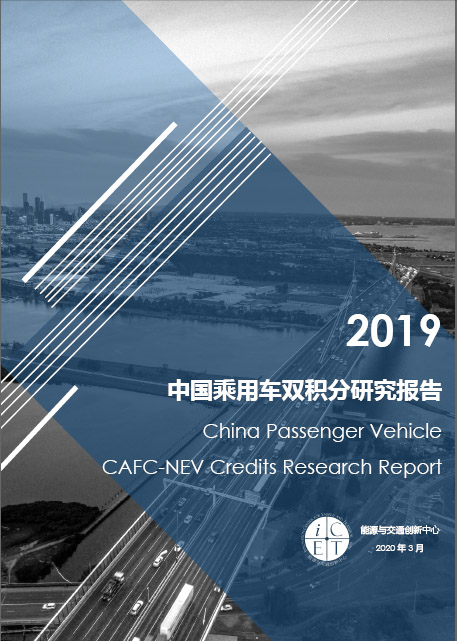
2019 China Passenger Vehicle CAFC-NEV Credits Research Report (March 2020 / Chinese)
The two core goals of China’s dual-credit policy, referring to its Parallel Management Regulation for Corporate Average Fuel Consumption (CAFC) and New Energy Vehicle (NEV) Credits, are to promote the development of new energy vehicles and to reduce energy consumptions of traditional vehicles. Since its implementation, the policy has played a major role in promoting the development of the new energy automobile industry. However, concurrently, due to the benefits of new energy vehicles and their one-way credit compensation, the overall decline in fuel consumption in traditional vehicles has also halted. The emphasis of this report is to introduce China’s dual-credit management mechanism for passenger vehicles, to investigate fuel consumption and new energy points and compliance toward the system, to decipher the impacts of traditional vehicles’ fuel consumption trends and new energy vehicles on CAFC calculations, to analyze the practicality of fuel consumption and new energy vehicle credits, and to make policy recommendations based on the research results.
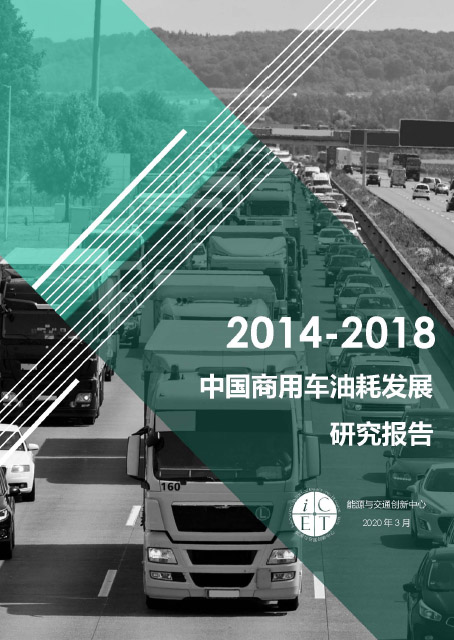
2014-2018 Fuel Consumption Development Research Report of China’s Commercial Vehicles (March 2020 / Chinese)
As a means of production, commercial vehicles play an important supporting role in the development of national economy. Based on production data of commercial vehicles from 2014 to 2018, this report systematically analyzes the market of light and heavy commercial vehicles and fuel consumption development in the past five years. The study found that commercial vehicles have shown a trend of scaling larger and larger with an overall decline in fuel consumption, though not to a great extent. In terms of new energy development, conversions to new energy city shuttles and buses have reached 95% with other types of vehicles steadily converting as well. Based on the research results, the report also put forward policy recommendations for the development of commercial vehicles.
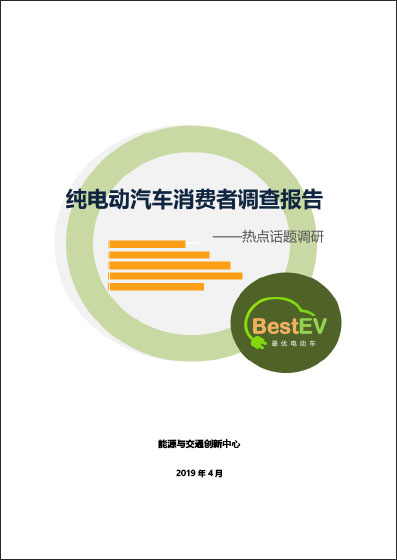
Consumer survey report of pure electric vehicles-hot topic survey (September 2019 )
BestEV conducts irregular surveys on current hot topics in the field of electric vehicles. This report is a survey and analysis of electric vehicle safety issues, subsidy subsidence, and willingness to purchase pure electric vehicles. BestEV, as a third-party platform, aims to build a communication bridge between consumers and industry researchers to better influence policy formulation and to conduct effect evaluation.